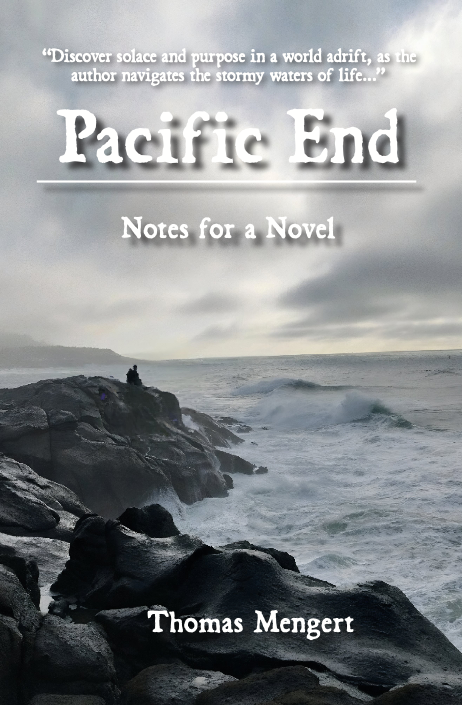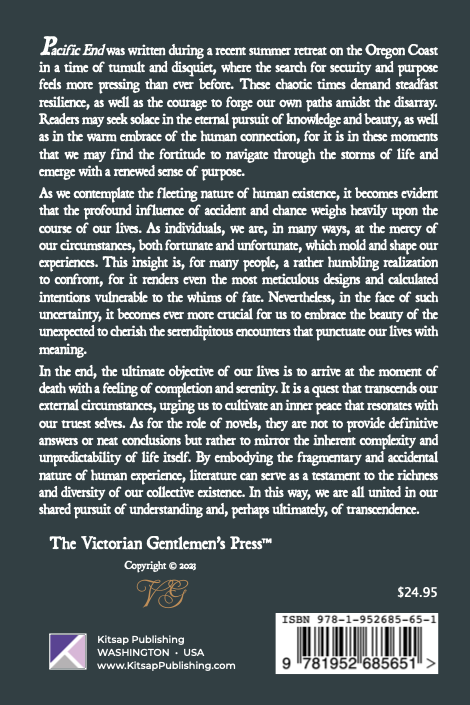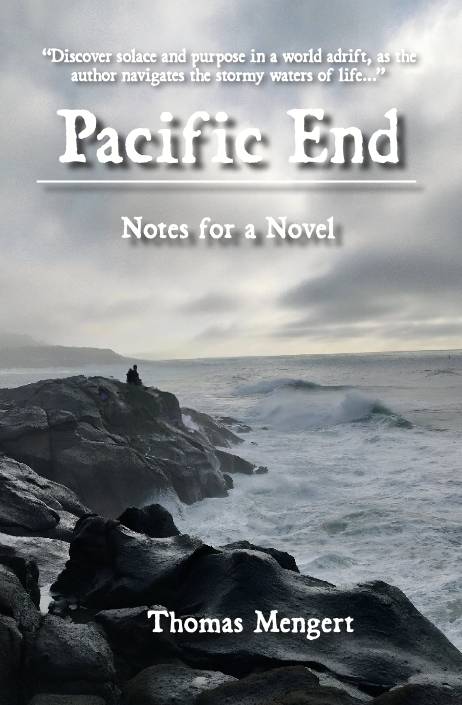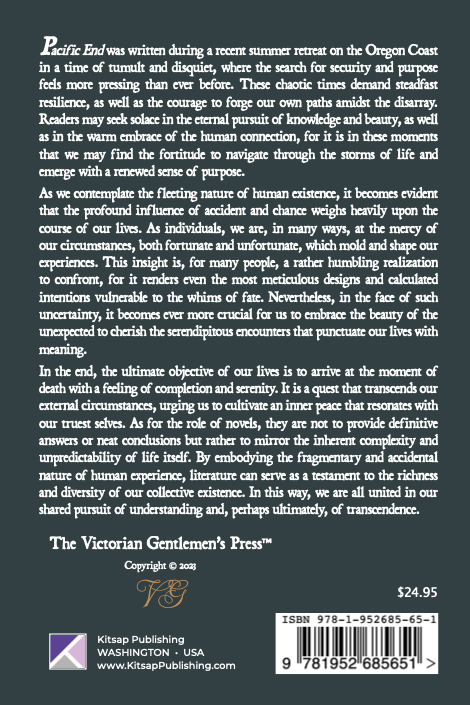Kitsap Publishing
Pacific End
Pacific End
Couldn't load pickup availability
Pacific End was written during a recent summer retreat on the Oregon Coast in a time of tumult and disquiet, where the search for security and purpose feels more pressing than ever before. These chaotic times demand steadfast resilience, as well as the courage to forge our own paths amidst the disarray. Readers may seek solace in the eternal pursuit of knowledge and beauty, as well as in the warm embrace of the human connection, for it is in these moments that we may find the fortitude to navigate through the storms of life and emerge with a renewed sense of purpose.
As we contemplate the fleeting nature of human existence, it becomes evident that the profound influence of accident and chance weighs heavily upon the course of our lives. As individuals, we are, in many ways, at the mercy of our circumstances, both fortunate and unfortunate, which mold and shape our experiences. This insight is, for many people, a rather humbling realization to confront, for it renders even the most meticulous designs and calculated intentions vulnerable to the whims of fate. Nevertheless, in the face of such uncertainty, it becomes ever more crucial for us to embrace the beauty of the unexpected to cherish the serendipitous encounters that punctuate our lives with meaning.
In the end, the ultimate objective of our lives is to arrive at the moment of death with a feeling of completion and serenity. It is a quest that transcends our external circumstances, urging us to cultivate an inner peace that resonates with our truest selves. As for the role of novels, they are not to provide definitive answers or neat conclusions but rather to mirror the inherent complexity and unpredictability of life itself. By embodying the fragmentary and accidental nature of human experience, literature can serve as a testament to the richness and diversity of our collective existence. In this way, we are all united in our shared pursuit of understanding and, perhaps ultimately, of transcendence.
Share




